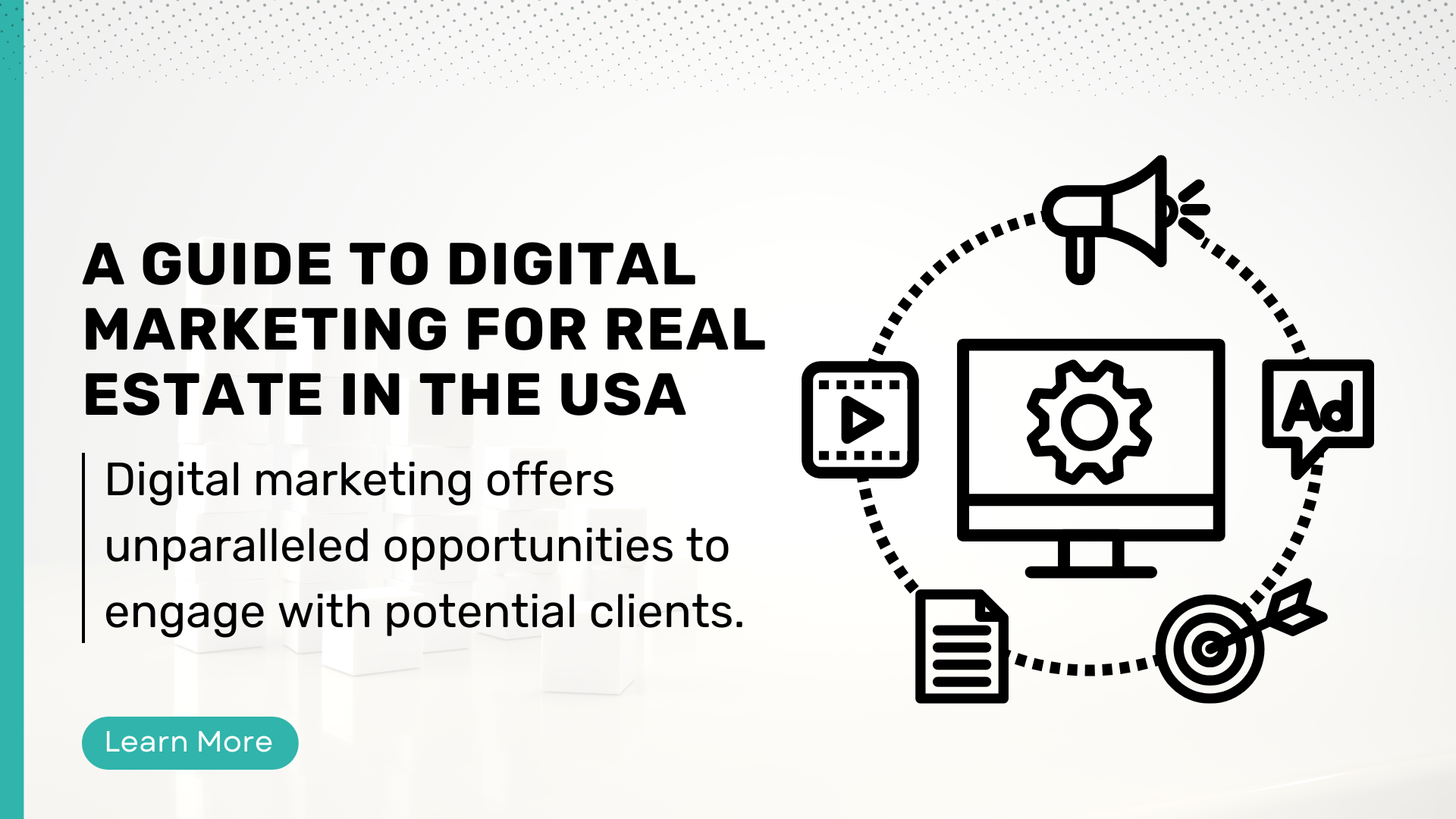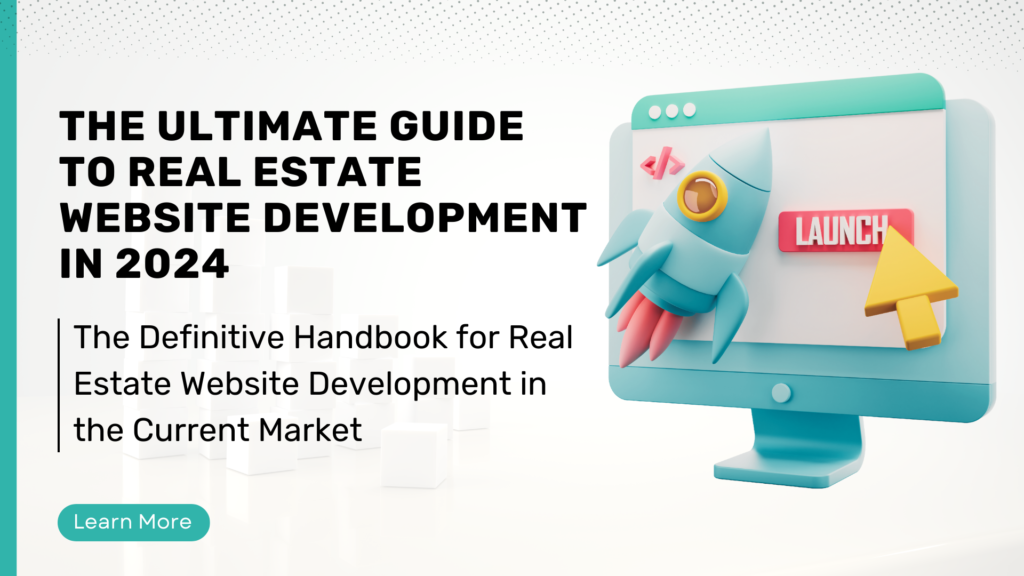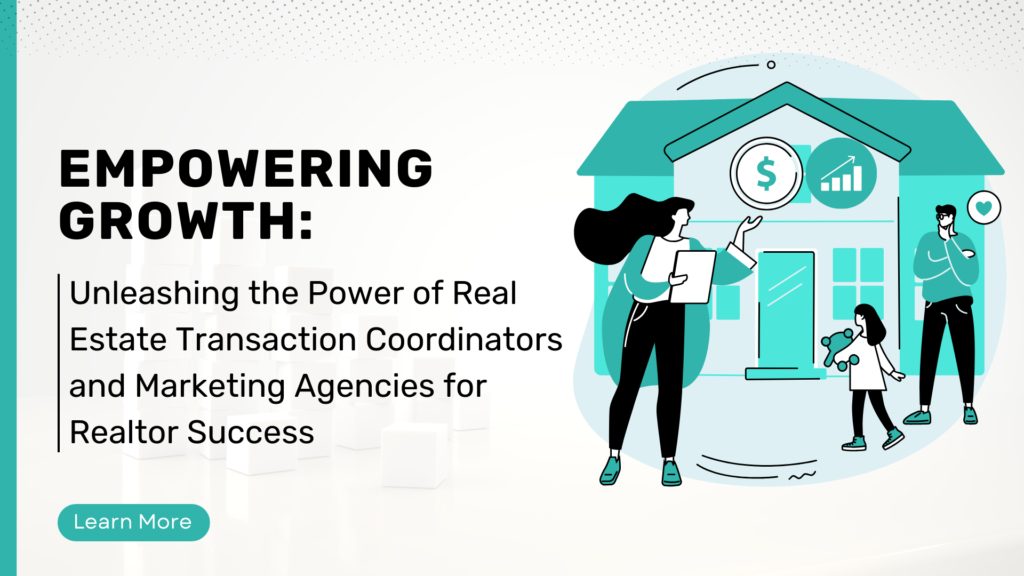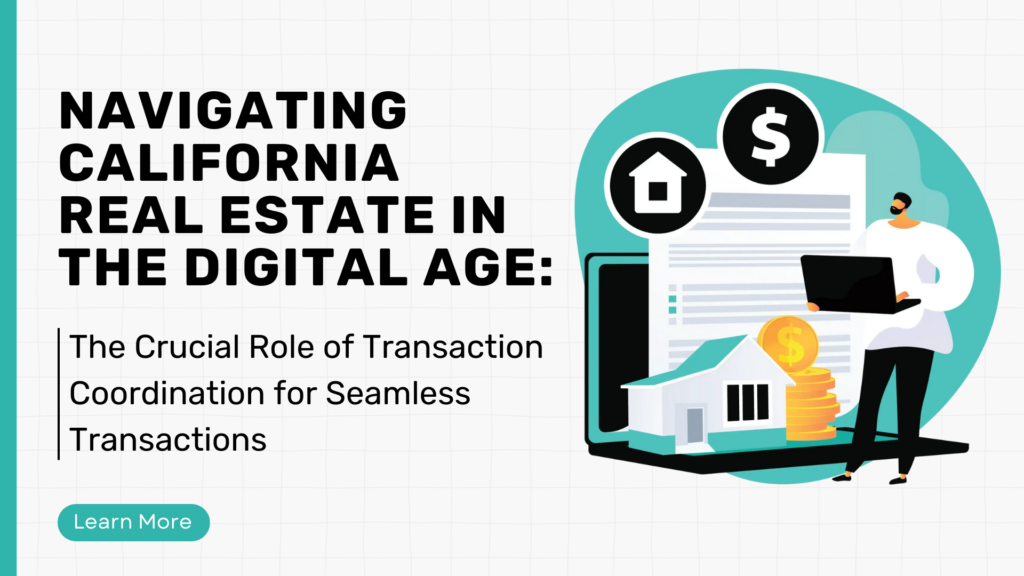A Guide to Digital Marketing for Real Estate in the USA
The real estate market in the USA is highly competitive. With thousands of realtors vying for the attention of buyers and sellers, it’s essential to stand out. Gone are the days when simply having a physical presence in a prime location could guarantee success. Today, digital marketing is a critical component of a realtor’s strategy to connect with potential clients and grow their business. Let’s break down the key strategies for mastering digital marketing in the real estate industry, specifically tailored to the USA market.
1. The Importance of Digital Marketing in Real Estate
Digital marketing offers unparalleled opportunities to engage with potential clients. Whether you’re dealing with first-time homebuyers, seasoned investors, or luxury home sellers, a solid digital presence can bridge the gap between you and your target audience. This is crucial in a country as vast and diverse as the USA, where local markets can vary dramatically.
Buyers and sellers now start their real estate journey online. They’re researching neighborhoods, looking at homes, comparing prices, and finding agents-all through digital platforms. To thrive in this competitive space, a well-crafted digital marketing strategy is no longer optional; it’s necessary.
2. Building a Strong Website
Your website is the foundation of your digital marketing efforts. It’s often the first point of contact potential clients have with your brand, and as such, it needs to make a great impression. Here’s how to make your real estate website effective:
- User Experience (UX) Design: Ensure your website is easy to navigate. Clear categories for buyers, sellers, and investors should be evident. Pages should load quickly, and the site should be mobile-friendly since many users browse from their phones.
- Content is Key: Include relevant content such as blog posts, neighborhood guides, market trends, and even mortgage calculators. Educational resources help establish you as a trusted expert in the field.
- Property Listings: This is where potential buyers will spend the most time. Ensure your listings are up-to-date, well-organized, and filled with high-quality images and video tours. Including 3D virtual tours is becoming increasingly popular, allowing buyers to tour homes remotely.
- SEO Optimization: A visually appealing site is not enough if no one can find it. Ensure your website is optimized for search engines. Use keywords relevant to your market and locale, like “Luxury Homes in San Diego” or “First-Time Homebuyers in Miami.” SEO is essential for appearing in Google search results, which will drive organic traffic to your site.
3. Content Marketing and Blogging
Content marketing is an effective way to engage potential clients by offering valuable information. Regular blogging not only keeps your website fresh but also improves your SEO. Here are some content ideas:
- Neighborhood Profiles: Write detailed guides about neighborhoods you serve. Include information about schools, local amenities, real estate trends, and lifestyle aspects of living there.
- Market Reports: Offer insights into market conditions, like average home prices, inventory levels, and what’s driving the market in your area.
- Buyer and Seller Guides: These can include tips on everything from financing options to staging homes for sale. Offering actionable advice can build trust and help potential clients feel more prepared for the buying or selling process.
- Success Stories and Testimonials: Showcase how you’ve helped past clients successfully navigate their real estate journey. Positive reviews and stories can humanize your brand and help build credibility.
4. Leveraging Social Media
Social media has become one of the most powerful tools for real estate professionals. It’s a direct way to connect with your audience and show off your brand’s personality. Here’s how to make the most of it:
- Choose the Right Platforms: Focus on platforms where your target audience spends their time. Instagram, Facebook, and LinkedIn are popular among real estate professionals. Instagram is excellent for showcasing stunning property photos and videos, while LinkedIn is perfect for networking with other professionals and reaching high-net-worth individuals.
- Create Engaging Content: Don’t just post listings. Share behind-the-scenes content, home tours, local events, and tips for buyers and sellers. Engaging stories and videos work well, especially when they feel personal and authentic.
- Advertise Smartly: Facebook and Instagram ads allow you to target specific demographics based on location, age, income level, and interests. Use these tools to reach potential buyers or sellers who may not be actively searching for a home yet.
- Engage with Your Audience: Social media isn’t just for posting content; it’s also for engagement. Respond to comments and messages promptly, ask questions in your posts, and encourage conversations. This helps build a sense of community and loyalty among your followers.
5. Email Marketing
Email marketing remains a powerful tool for real estate professionals. Whether you’re sending out newsletters, market updates, or personalized property recommendations, emails keep you top of mind with your audience. Here are some best practices:
- Segment Your Audience: Divide your email list into categories such as buyers, sellers, and investors. You can even segment by location or buying intent. This allows you to send more targeted content that’s relevant to each group.
- Provide Value: Don’t bombard your audience with constant sales pitches. Instead, focus on providing value. Share useful content such as how-to guides, market reports, or tips for first-time homebuyers. The goal is to build trust, not just make a sale.
- Personalize Your Emails: People are more likely to open emails that feel personalized. Use the recipient’s name, mention properties they might be interested in, and tailor the content to their preferences.
- Automate Where Possible: Use automation to send follow-up emails, welcome new subscribers, or nurture leads over time. Tools like Mailchimp or Constant Contact can help streamline this process.
6. Pay-Per-Click (PPC) Advertising
Pay-Per-Click (PPC) advertising can be a highly effective way to drive traffic to your website and generate leads. Google Ads and Facebook Ads are two of the most popular platforms for PPC campaigns. Here’s how to make them work for your real estate business:
- Target Specific Keywords: Use targeted keywords like “buy a home in [city]” or “luxury real estate in [neighborhood]” to reach potential clients who are actively searching for properties in your area.
- Geotargeting: Real estate is location-based, so make sure your ads are only shown to people in your target geographic area. This ensures that your budget is spent on reaching the right audience.
- Create Compelling Landing Pages: When someone clicks on your ad, they should be taken to a landing page that is relevant to the ad content. Ensure that the landing page is optimized for conversions, whether that’s signing up for a newsletter, requesting a consultation, or scheduling a property tour.
7. Video Marketing
Video marketing has exploded in popularity, and it’s especially effective in real estate. Potential buyers love to see virtual tours, agent introductions, and community highlights. Here are some ways to incorporate video into your digital marketing:
- Property Tours: Virtual property tours give potential buyers a feel for the space without needing to visit in person. These can be simple walkthroughs or more polished productions with music, narration, and professional editing.
- Neighborhood and Lifestyle Videos: Showcase what it’s like to live in the neighborhoods you serve. Highlight local businesses, parks, schools, and other amenities that make the area attractive to buyers.
- Agent Introductions: Introduce yourself through video! This gives potential clients a chance to get to know you and your personality before they even meet you. A warm, friendly video can go a long way in building trust.
- Market Updates: Create short videos offering insights into the current real estate market. Share your thoughts on where prices are headed, what’s driving demand, and any relevant local news.
8. Online Reviews and Reputation Management
Reputation is everything in real estate, and your online presence plays a big role in shaping how potential clients perceive you. Positive reviews can be incredibly persuasive, so make sure you actively manage your online reputation.
- Encourage Reviews: Ask satisfied clients to leave reviews on platforms like Google, Zillow, Yelp, and Facebook. Make it easy for them by providing direct links.
- Respond to Reviews: Whether positive or negative, respond to all reviews professionally and courteously. A well-handled negative review can show future clients that you care about resolving issues and maintaining relationships.
- Showcase Testimonials: Highlight glowing reviews on your website and social media. Client testimonials are powerful social proof that can build trust with potential clients.
Conclusion
In the fast-paced world of real estate, mastering digital marketing is no longer an option; it’s a necessity. By building a strong website, engaging in content marketing, leveraging social media, and utilizing tools like PPC and email marketing, you can reach a broader audience and attract more clients.
Every real estate market is different, and the USA presents a unique set of challenges and opportunities. But with the right strategies and a consistent digital presence, you can grow your brand, connect with your ideal clients, and build a thriving real estate business in any corner of the country.
Whether you’re an experienced realtor or just starting out, we will help you stay ahead of the competition. Reach out to The Realtor’s Concierge for personalized support designed to meet your specific needs. Together, let’s shape the future of real estate!




